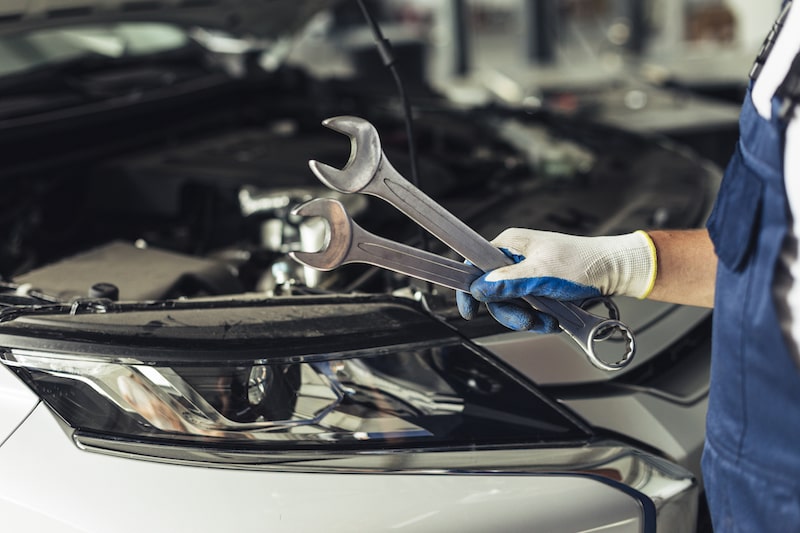There are four basic types of auto insurance coverage that will reimburse for repairs to your vehicle, none of which will cover for mechanical issues. They include liability, collision, comprehensive, and uninsured motorists.
- Collision. This is going to reimburse for repairs following an accident despite who was at fault for the crash.
- Comprehensive. Reimbursement is not related to a collision of any kind but rather damages pertaining to a named peril such as a natural disaster.
- Liability or Property Damages. When you are the cause of an accident that brings injury or damages, this will reimburse that driver. If they’re at fault, their liability will kick in.
- Uninsured Motorist. Reimburses you if the driver who is responsible for the crash has no insurance.
The thing that resonates with all of them is that they become effective if the vehicle has received damage as the result of an external cause. They don’t cover any type of engine repair that is due to regular wear and tear. If there is evidence that a vehicle accident or any other type of external incident was the cause of the issue, the insurance will likely reimburse for the damages to be repaired. If not, you’ll be responsible for out-of-pocket. In a majority of the states the comprehensive, uninsured, and collision coverages are all optional reimbursements that you aren’t required to have. Liability is the minimum requirement by law. PIP and liability won’t cover anything to do with your car’s repairs anyway.
Coverage That May Pay For Engine Breakdown
If the repairs that you need to make to your car are not the result of a vehicle accident or other types of damages, there are two coverages that you can use to make a claim for repairs, neither of which is a part of your standard auto insurance plan.
Your vehicle warranty would be the first option. If your vehicle is in fairly new condition, meaning less than six years old, there is most likely a warranty that will payout for the repair of any kind of mechanical issues up to a certain period of time or amount of distance that has been driven. If you went full tilt for an extended warranty, you will most likely be reimbursable for a blown engine. Something to remember is that most warranties on cars have two sections:
- Bumper-bumper that will reimburse for every component of your car.
- Powertrain that only reimburses for the components that actually make the car go.
The second option is called the MBI or mechanical breakdown coverage or also known as mechanical failure insurance which is a kind of reimbursement that may cover expenses for repairing the engine failing or other types of mechanical issues. It almost acts as an extended warranty as it reimburses for nearly any type of breakdown including a motor being blown, but with this, you will purchase from an actual auto insurance company.
It’s a difficult decision as to whether to choose an extended warranty or an MBI as they are very similar to each other but each has their own set of benefits. An extended warranty is available for a wider scope of vehicles while MBI is less expensive each month and also is much more flexible as far as the mechanics.
- MBI. Less expensive, can pay in installments, can select your own mechanic/higher deductible, may not be available for high-end vehicles, generally won’t include minor repairs.
- Extended warranty. Lower deductible, available for a majority of car types, includes minor repairs as well as major fixes/higher cost of coverage, must pay upfront, generally need to use dealer’s selected mechanic.
Should You Buy Mechanical Breakdown Insurance?
Mechanical breakdown insurance is an optional add on to your auto insurance policy that will cover your trips to the mechanic in kind of the same way that your extended warranty is going to do. It’s reasonably priced but some wonder if it’s really necessary considering the extended warranty that most folks have with the purchase of their new vehicle and the few visits that you would likely make to the mechanic for these types of repairs with a newer vehicle. See, the kicker is this coverage is only available for newer vehicles in order for policyholders to be eligible through most of the auto insurance carriers. Auto insurance carriers won’t take older vehicles for the MBI coverage as they have a higher likelihood of breaking down.
Sadly, regular auto insurance plans don’t cover mechanical issues. If your vehicle has any type of repairs that need to be done that aren’t related to an accident or some type of incident that would generally be covered by your standard plan, you will likely be caught having to pay the expenses out-of-pocket. You can buy the MBI but you need to have a new car and as the car ages, the MBI will no longer be made available to you. It’s a lot like an extended warranty, it expires after your car reaches a certain age.

